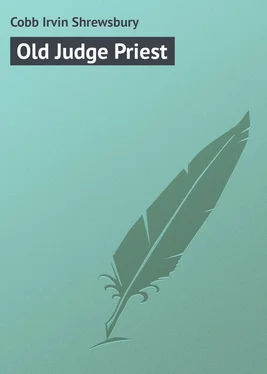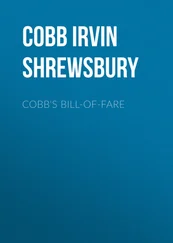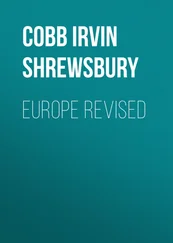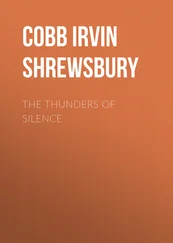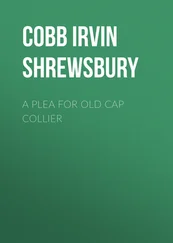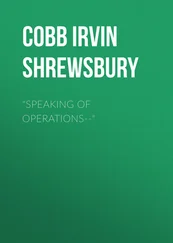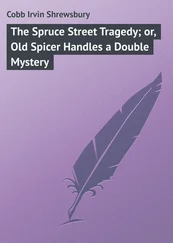Irvin Cobb - Old Judge Priest
Здесь есть возможность читать онлайн «Irvin Cobb - Old Judge Priest» — ознакомительный отрывок электронной книги совершенно бесплатно, а после прочтения отрывка купить полную версию. В некоторых случаях можно слушать аудио, скачать через торрент в формате fb2 и присутствует краткое содержание. Жанр: foreign_prose, на английском языке. Описание произведения, (предисловие) а так же отзывы посетителей доступны на портале библиотеки ЛибКат.
- Название:Old Judge Priest
- Автор:
- Жанр:
- Год:неизвестен
- ISBN:нет данных
- Рейтинг книги:5 / 5. Голосов: 1
-
Избранное:Добавить в избранное
- Отзывы:
-
Ваша оценка:
- 100
- 1
- 2
- 3
- 4
- 5
Old Judge Priest: краткое содержание, описание и аннотация
Предлагаем к чтению аннотацию, описание, краткое содержание или предисловие (зависит от того, что написал сам автор книги «Old Judge Priest»). Если вы не нашли необходимую информацию о книге — напишите в комментариях, мы постараемся отыскать её.
Old Judge Priest — читать онлайн ознакомительный отрывок
Ниже представлен текст книги, разбитый по страницам. Система сохранения места последней прочитанной страницы, позволяет с удобством читать онлайн бесплатно книгу «Old Judge Priest», без необходимости каждый раз заново искать на чём Вы остановились. Поставьте закладку, и сможете в любой момент перейти на страницу, на которой закончили чтение.
Интервал:
Закладка:
Now they would come to cornfields and tobacco patches that steamed in the sunshine, conceding the season to be summer; or else old, abandoned clearings, grown up rankly in shoe-make bushes and pawpaw and persimmon and sassafras. And the pungent scent of the wayside pennyroyal would rise like an incense, saluting their nostrils as they passed, and the grassy furrows of long-harvested grain crops were like the lines of graves on old battlegrounds.
Now they would come into the deep woods; and here the sunlight sifted down through the tree tops, making cathedral aisles among the trunks and dim green cloisters of the thickets; and in small open spaces the yellowing double prongs of the mullein stalks stood up stiff and straightly like two-tined altar candles. Then out of the woods again and along a stretch of blinding hot road, with little grey lizards racing on the decayed fence rails as outriders, and maybe a pair of those old red-head peckerwoods flickering on from snag to snag just ahead, keeping company with the judge, but never quite permitting him to catch up with them.
So, at length, after five miles, or maybe ten, he would come to his destination, which might be a red-brick house set among apple trees on a low hill, or a whitewashed double cabin of logs in a bare place down in the bottoms. Here, at their journey’s end, they would halt, with Mittie May heaving her rotund sides in and out in creditable simulation of a thoroughbred finishing a hard race; and Judge Priest would poke his head out from under the buggy hood and utter the customary hail of “Hello the house!” At that, nine times out of ten – from under the house and from round behind it – would boil a black-and-tan ground swell of flap-eared, bugle-voiced hound dogs, all tearing for the gate, with every apparent intention of devouring horse and harness, buggy and driver, without a moment’s delay. And behind them, in turn, a shirt-sleeved man would emerge from the shelter of the gallery and hurry down the path toward the fence, berating the belling pack at every step he took:
“You Sounder, you Ring, you Queen – consam your mangy pelts! Go on back yonder where you belong! You Saucer – come on back here and behave yourse’f! I bet I take a chunk some of these days and knock your fool head off!”
As the living wave of dogs parted before his advance and his threats, and broke up and turned about and vanished with protesting yelps, the shirt-sleeved one, recognising Mittie May and the shape of the buggy, would speak a greeting something after this fashion:
“Well, suh – ef it ain’t Jedge Priest! Jedge, suh, I certainly am proud to see you out this way. We was beginnin’ to think you’d furgot us – we was, fur a fact!”
Over his shoulder he would single out one of a cluster of children who magically appeared on the gallery steps, and bid Tennessee or Virgil or Dora-Virginia or Albert-Sidney, as the name of the chosen youngster might be, to run and tell their ma that Judge Priest had come to stay for dinner. For the judge never sent any advance notice of his intention to pay a Sunday visit; neither did he wait for a formal invitation. He just dropped in, being assured of a welcome under any rooftree, great or humble, in his entire judicial district.
Shortly thereafter the judge, having been welcomed in due state, and provision made for Mittie May’s stabling and sustenance, would be established on the gallery in the rocking-chair of honour, which was fetched out from the parlour for his better comfort. First, a brimming gourd of fresh spring water would be brought, that he might take the edge off his thirst and flush the dust out of his throat and moisten up his palate; and then would follow a certain elaborated rite in conjunction with sundry sprigs of young mint and some powdered sugar and outpourings of the red-brown contents of a wicker demijohn.
Very possibly a barefooted and embarrassed namesake would be propelled forward, by parental direction, to shake hands with the guest; for, except old Doctor Saunders, Judge Priest had more children named for him than anybody in our county. And very probably there would come to his ears from somewhere rearward the frenzied clamour of a mighty barnyard commotion – squawkings and cacklings and flutterings – closely followed by the poignant wails of a pair of doomed pullets, which grew fainter and fainter as the captives were borne to the sacrificial block behind the woodpile – certain signs, all these, that if fried chicken had not been included in the scope and plan of Sunday dinner, fried chicken would now be, most assuredly.
When dinner was over, small messengers would be sent up the road and down to spread the word; and various oldsters of the vicinity would leave their own places to foregather in the dooryard of the present host and pass the time of day with Judge Priest. Sooner or later, somehow, the talk would work backward to war times. Overhearing what passed to and fro, a stranger might have been pardoned for supposing that it was only the year before, or at most two years before, when the Yankees came through under Grant; while Forrest’s Raid was spoken of as though it had taken place within the current month.
Anchored among the ancients the old judge would sit, doing his share of the talking and more than his share of the listening; and late in the afternoon, when the official watermelon, all dripping and cool, had been brought forth from the springhouse, and the shadows were beginning to stretch themselves slantwise across the road, as though tired out completely by a hard day’s work in the broiling sun, he and Mittie May would jog back toward town, meeting many an acquaintance on the road, but rarely passing one. And the upshot would be that at the next Democratic primary the opposing candidate for circuit judge – if there was any opposing candidate – got powerfully few votes out of that neighbourhood.
Such Sunday excursions as these and such a Sunday dinner as this typical one formed a regular part of Judge Priest’s weekly routine through at least nine months of the year. If unforeseen, events conspired to rob him of his trip to the country he felt the week had not rightly rounded itself out; but once a year he attended a dinner beside which all other dinner occasions were, in his estimation, as nothing at all. With regard to this particular affair, he used to say it took him a week to get primed and ready for it, one whole night to properly enjoy it, and another week to recover from the effects of it. I am speaking now of the anniversary banquet of the survivors of Company B – first and foremost of the home companies – which was and still is held always on a given date and at a given place, respectively, to wit: The evening of the twelfth of May and the dining room of the Richland House.
Company B held the first of its annual dinners at the Richland House away back in ‘66. That time sixty and more men – young men, mostly, in their mid-twenties and their early thirties – sat down together to meat and drink, and no less a personage than General Grider presided – that same Meriwether Grider who, going out in the first year of the war as company commander, came back after the Surrender, bringing with him the skeleton remnants of a battered and a shattered brigade.
General Meriwether Grider has been dead this many a year now. He gave his life for the women and the children when the Belle of the Bends burned up at Cottonwood Bar; and that horror befell so long ago that the present generation down our way knows it only as a thing of which those garrulous and tiresome creatures, the older inhabitants, are sometimes moved to speak. But the rules for the regulation and conduct of subsequent banquets which were adopted on that long-ago night, when the general sat at the head of the table, hold good, even though all else in our town has changed.
Читать дальшеИнтервал:
Закладка:
Похожие книги на «Old Judge Priest»
Представляем Вашему вниманию похожие книги на «Old Judge Priest» списком для выбора. Мы отобрали схожую по названию и смыслу литературу в надежде предоставить читателям больше вариантов отыскать новые, интересные, ещё непрочитанные произведения.
Обсуждение, отзывы о книге «Old Judge Priest» и просто собственные мнения читателей. Оставьте ваши комментарии, напишите, что Вы думаете о произведении, его смысле или главных героях. Укажите что конкретно понравилось, а что нет, и почему Вы так считаете.
